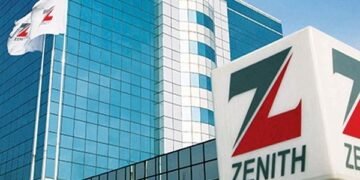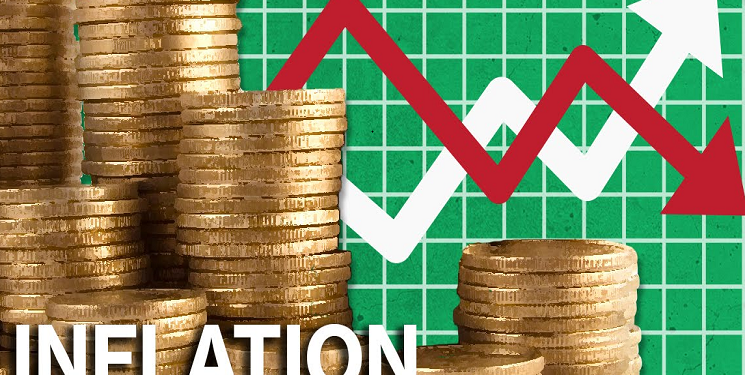According to the latest report by the National Bureau of Statistics, the Consumer price index (CPI) which measures inflation increased by 12.56% year on year in June 2020. This represents a 0.16% increase compared to 12.40% recorded in May 2020.
The highest “all items” inflation was recorded in Bauchi at 15.02% YoY, while the lowest was recorded in Kwara. Whereas for “food inflation” Sokoto recorded the largest inflation at 17.88% with Bauchi recording the lowest at 12.86%
June inflation rate is the highest that has been recorded in Nigeria in 27 months, as the average prices of goods and services and continue to rice in the country.
On month-on-month basis, the headline index increased by 1.21% in June 2020, this is 0.04% rate higher than the 1.17% rate recorded in May 2020.
This rise is largely attributed to the increase in prices of goods and services emanating from the economic crisis of Covid-19 pandemic. The value of the naira has been dropping against the dollar and pounds, thus importers will spend more naira to acquire the same goods which will ultimately translate to a higher price for the consumers.
- Have you read?
- CBN guidelines for accessing its Non-Oil Export Stimulation Facility (NESF)
- FG of Nigeria Spent N8.55 trillion on Debt Service in 5 Years
The urban inflation rate increased by 13.18 percent (year-on-year) in June 2020 from 13.03 percent recorded in May 2020, while the rural inflation rate increased by 11.99 percent in June 2020 from 11.83 percent in May 2020.
On a month-on-month basis, the urban index rose by 1.23 percent in June 2020, up by 0.05 from 1.18 percent recorded in May 2020, while the rural index also rose by 1.19 percent in June 2020, up by 0.03 from the rate recorded in May 2020 (1.16) percent
The composite food index rose by 15.18 percent in June 2020 compared to 15.04 percent in May 2020. This rise in the food index was caused by increases in prices of Bread and Cereals, Potatoes, Yam and other tubers, Fruits, Oils and Fats, Meat, Fish and Vegetables.
On month-on-month basis, the food sub-index increased by 1.48 percent in June 2020, up by 0.06 percent points from 1.42 percent recorded in May 2020.
The ”All items less farm produce” or Core inflation, which excludes the prices of volatile agricultural produce stood at 10.13 percent in June 2020, up by 0.01 percent when compared with 10.12 percent recorded in May 2020
On month-on-month basis, the core sub-index increased by 0.86 percent in June 2020. This was down by 0.02 percent when compared with 0.88 percent recorded in May 2020
The highest increases were recorded in prices of Medical services, Hospital services, Passenger transport by road, Pharmaceutical products, Motor cars, Paramedical services, Maintenance and repair of personal transport equipment, Bicycles, Motor cycles, Vehicle spare parts and Other services in respect of personal transport equipment.
In June 2020, all items inflation on year on year basis was highest in Bauchi (15.02%), Sokoto (14.88%) and Ebonyi (14.60%), while Cross River (10.95%), Lagos (10.78%) and Kwara (10.03%) recorded the slowest rise in headline Year on Year inflation.
On a month on month basis, however, all items inflation was highest in Bauchi (1.95%), Sokoto (1.89%) and Kogi (1.83%), while Delta (0.56%), Borno and Kwara (0.45%) and Ekiti (0.40%) recorded the slowest rise in headline month on month inflation.
Read further; Billionaires borrowed billions of dollars to invest in Equities at the peak of market crash and profited massively
In June 2020, food inflation on a year on year basis was highest in Sokoto (17.88%), Plateau (17.04%) and Abuja (16.82%), while Lagos (13.46%), Ogun (13.18%) and Bauchi (12.86%) recorded the slowest rise.
On month on month basis however, June 2020 food inflation was highest in Kogi (3.07%), Benue (2.41%) and Zamfara (2.24%), while Ondo (0.47%), Anambra (0.42%) and Lagos (0.18%) recorded the slowest rise.
The economic hardship in Nigeria is increasing with many people losing their jobs and several out of business, purchasing power of the general public is declining with limited income. The rise in inflation in June is the tenth consecutive month of increase, which continues to erode the value of money.
This means that the same amount of money will purchase limited amount of goods or services than it use to. This scenario presents a difficulty especially for fixed income earners, whose income is not moving in the same direction as the inflation.
The reduction in value of money also have adverse effects on cash assets especially the cash held at hand or in bank accounts.
Written by;
Ifunanya Ikueze
























































